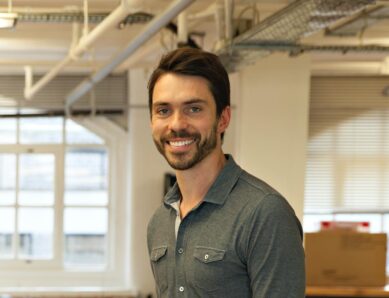Do “great minds think alike”? No, not really. Neuroscience has found that every mind is different – to the point that a scan of someone’s brain is as recognizable as a fingerprint.
There are some commonalities, however. Most brains work similarly enough to have common ground and establish common working practices that fit most people, most of the time. But what about those of us who fall through the cracks? Those of us who process information differently?
Ed Thompson, founder and CEO of Uptimize, is dedicated to increasing awareness and support for employees who think differently, including individuals with autism, ADHD and dyslexia. Humanity can be described as “neurodiverse,” while these individuals are “neurodivergent,” thinking differently from most.
Thompson’s new book, “A Hidden Force: Unlocking the Potential of Neurodiversity at Work,” explores the rise of the neurodiversity movement, as well as the strengths that neurodivergent workers bring to the table. It also suggests some strategies that we can all adopt to make our companies more supportive and inclusive of diverse thinkers.
Looking Beyond “Hiring for Culture Fit”
In this clip from our Expert Interview, Thompson discusses how the hiring process often unintentionally works against neurodivergent talent. (You can stream the audio clip below or read a transcript here.)
I think back to the jobs I’ve been hired for. Often, the managers had common ground with me socially, and it felt more like I’d passed a “fit test” than an objective assessment of my capabilities. I was no less capable of doing other jobs where I’d been turned down… and usually, in those cases, I likely didn’t resemble the hiring managers’ ideal candidate or “click” with them in conversation.
But not everyone finds it easy to “click” with an interviewer. Many neurodivergent individuals find it hard to read people and navigate what can look like an opaque and confusing social script. Interviews are a test of social competency, which might have nothing to do with the job that managers are hiring someone to perform!
Neurodiversity Means Untapped Skills
Since the 2010s, I’ve been involved with neurodivergent communities, including an adult autism support group and conferences on specific learning disabilities.
And this past year, I was part of Mind Tools’ neurodiversity lived experience panel. This initiative brought together neurodivergent and a few neurotypical colleagues to share experiences of navigating the workplace. We also helped to shape the resources that Mind Tools created to educate customers about neurodiversity at work.
It’s been a privilege to connect with these groups, and I’ve learned an immense amount from everyone’s perspectives and strengths. I’ve also seen how challenging it is for many people with atypically wired brains to navigate a world designed for the majority.
Unintentional Exclusion
There is so much power and brilliance in neurodivergent communities. So why has it been so hard for many of the people I’ve met to find and keep work?
Well, to start, many job descriptions ask for generalists – when many talents come in specialist form. For example, do you really need “strong communication skills” to program a computer? Thompson argues that often, hiring managers lack knowledge and awareness of neurodiversity, and as a result will add a bunch of nice-to-have skills to their job descriptions when they’re not necessary to perform the work. Unfortunately, it’s often these criteria that unintentionally excludes different types of minds.
Second, employment history can look like another red flag to those doing the hiring. Many neurodivergent workers, especially older ones, may have found it difficult to follow a smooth employment trajectory, often for reasons outside of their control. This means that their talents may be obscured by a non-standard CV.
Supporting Neurodiversity in Working Practices
So how can we redesign workplaces to be more neuro-inclusive?
Thompson says that education is a good first step. Most people have no training in neurodiversity and neuro-inclusion, but firms like Uptimize can fill that gap. Companies can tweak the dreaded hiring process – adding skills-based assessment, for example, and making sure the job description matches only what’s required for the job.
It’s also important to build in flexibility. Thompson stresses the need for “universal design.” Creating work environments that support varying needs and preferences will make neurodivergent employees – and all of us – more comfortable and productive.
Organizations can offer small adjustments for sensory needs, such as noise-canceling headphones, to any employee who wants them, along with flexible working options. And, on an individual basis, they can maintain proactive openness. Thompson’s book lists an example of one employee who requested and received a weighted blanket, for example. Individual needs vary, and neuro-inclusion involves respecting that.
“In this idea of really embracing the neurodiverse team,” Thompson says, “good things happen.”



